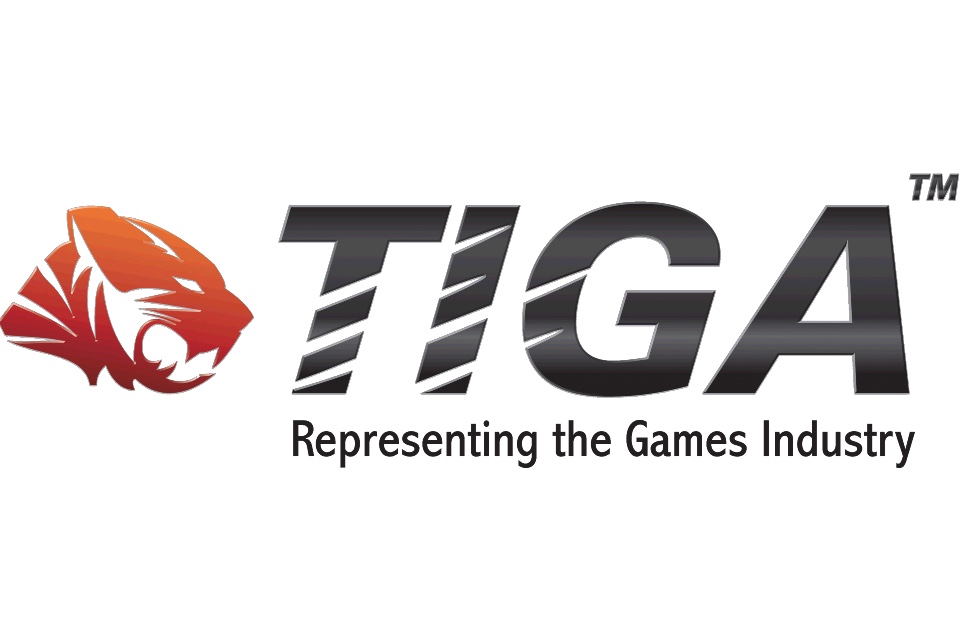Games Development, BSc Hons
This degree in game design and development provides the creative and technical skills you need for a career in the video games industry.
Dive into the exhilarating world of video games development with our BSc Hons Games Development degree, which offers a comprehensive blend of theory, practice, and technology, all crucial for your future career in the games industry. You’ll delve into games programming and the creative aspects of games development as you work with cutting-edge computer technologies through hands-on projects with industry-standard tools like Unity and Unreal Engine. This programme allows you to specialise in exciting areas such as gameplay programming, 3D modelling and animation, game AI, graphics programming, user interface design, virtual reality or game audio.
Our degree is proudly accredited by TIGA, the trade association representing the UK games industry. This prestigious accolade signifies to future employers that you possess the right skills, as TIGA only accredits top-tier courses that produce industry-ready graduates. TIGA have praised aspects of the course such as the inclusion of industry guest talks from Sony PlayStation, and opportunities for collaborative cross-disciplinary work on our vibrant group project modules and game jams.
Our computer labs are equipped with high-spec gaming computers featuring RTX graphics processing units (GPUs) and dual screens, housed within our state-of-the-art games and digital media suite. Our unique facilities on the bank of the Thames also play host to Sony PlayStation 5 Development Kits, Meta Quest 3 virtual reality headsets, and regular events ranging from visits to games studios to industry workshops. The games course is not only a programme of study, but a rich community of creative and technical experts, where you will be inspired by staff and your fellow students. By the end of the course, our graduates have in-demand technical and communication skills that allow them to land prestigious jobs in the video game industry, IT, serious games, virtual reality and digital industries.
This programme may include a range of learning activities such as on-campus teaching, practical sessions, workshops, placements or field-based work. These activities form part of the core learning experience.
We welcome applications from disabled students and those with long-term health conditions. We encourage you to contact the Programme Team/admissions as early as possible so we can discuss your individual needs and explore reasonable adjustments. Please also visit our webpage to find out more about support available at the University.
UCAS points
112 (full requirements below)
Course/institution codes
GG64 G BSc/IMGD
Location
Duration
- 3 years full-time
- 6 years part-time
- 4 years sandwich
Start month
September
Home* /international fees 2026/27
£9,790 /£17,975
What you should know about this course
* Home fees
The government regulated undergraduate home tuition fee rate for 2026-27 has been confirmed as £9,790 per year.
Accreditations and Academic Partners
What you will study
About the course team
This degree course employs a range of innovative teaching and learning methods. Lectures and labs/tutorials are dynamic and interactive. You will be taught by an experience team of lecturers, which include senior academics and technical officers, and the majority of our lecturers hold a teaching qualification.
Come and meet us
We are offering virtual events so you can still experience how Greenwich could be the right university for you.
Next Open Days
Got a question?
To find out more about our Open Days and Campus Tours or if you need any assistance, please email opendays@gre.ac.uk.
Entry requirements
- 112 UCAS Tariff points. We accept A Levels, T Levels, BTECs, Access to HE and all other qualifications with UCAS Tariff points.
We make Contextual offers to this programme. Applicants that meet specific eligibility criteria will be made a contextual offer with a reduced tariff of up to 16 UCAS Tariff points. For further information, please see our Contextual Admissions policy.
We also accept applications if you wish to transfer from another institution, and have already studied 1 or 2 years of a relevant course at level 4 or 5 and wish to continue your education at the University of Greenwich.
For more information, use our contact form or call us on 020 8331 9000.
You can also read our admissions policy.
Available to overseas students?
Yes
Can I use Prior Learning?
For entry: applicants with professional qualifications and/or four years of full-time work experience will be considered on an individual basis.
For exemption: If you hold qualifications or courses from another higher education institution, these may exempt you from courses of this degree.
How you will learn
Teaching
Learning takes place through a combination of timetabled learning and independent study.
You can view more information about how each module is taught within our 'What you will study' section.
Seminars and workshops enable you to discuss and develop your understanding of topics covered in lectures in smaller groups. You will also be able to meet your personal tutor. Timetabled learning may fall between 9am and 9pm depending on your courses and tutorials.
Independent learning
Outside of timetabled sessions, you'll need to dedicate time to self-study to complete coursework, prepare for presentations, and exploration of game technology
You can use our Stockwell Street library and online resources to support you in these activities.
We encourage you to join societies such as:
- The Computer Society
- Games Development Society
- And many other student societies supported by the University of Greenwich Student Union.
Overall workload
Your overall workload consists of lectures, seminars, independent learning, and assessments. For full-time students, the workload should be approximately equivalent to a full-time job. For part-time students, this will reduce in proportion with the number of modules you are studying.
Each module you study towards this degree is worth 15 or 30 credits. These represent around 150-300 study hours respectively. If you receive 72 contact hours for a 30-credit module, you should expect to commit 228 hours to independent study to complete it successfully.
Assessment
You can view how each module is assessed within our 'What you will study' section.
Each course has formal assessments which count towards your grade. Some courses may also include 'practice' assignments, which help you monitor progress and do not count towards your final grade.
Feedback summary
We aim to give feedback on assignments within 15 working days.
Dates and timetables
The academic year runs from September to June.
Full teaching timetables are not usually available until term has started. For any queries, please use our contact form.
Official statistics on Discover Uni
Full time
Part time
Fees and funding
Tuition fees
| Cohort | Full time | Part time | Distance learning |
|---|---|---|---|
| Home* | £9,790 | £2,445 per 30 credits | N/A |
| International | £17,975 | £4,494 per 30 credits | N/A |
University is a great investment in your future. English-domiciled graduate annual salaries were £10,500 more than non-graduates in 2023 - and the UK Government projects that 88% of new jobs by 2035 will be at graduate level.
(Source: DfE Graduate labour market statistics: 2023/DfE Labour market and skills projections: 2020 to 2035).
* Home fees
The government regulated undergraduate home tuition fee rate for 2026-27 has been confirmed as £9,790 per year.
Other costs
Technology: There are no compulsory costs beyond your tuition fees. However, we may recommend that you purchase a backup device (such as a portable hard drive).
Software: We provide all required software in our state-of-the-art games development computer labs. Licences for certain software to use on your own computers are also available depending on your course. The main game development packages taught on this programme are free for educational use. Students will also have access to the Adobe Creative Cloud suite and Microsoft Azure DevOps. Any licences for software outside of our range will come at your own cost.
Scholarships and bursaries
We offer a wide range of financial help including scholarships and bursaries.
The Greenwich Bursary
This bursary is worth £700 for new undergraduate students with a low household income, entering Year 0 or 1 who meet the eligibility criteria.
EU Bursary
Following the UK's departure from the European Union, we are supporting new EU students by offering a substantial fee-reduction for studying.
Financial support
We want your time at university to be enjoyable, rewarding, and free of unnecessary stress, so planning your finances before you come to university can help to reduce financial concerns. We can offer advice on living costs and budgeting, as well as on awards, allowances and loans.
Careers and placements
Will I have a work placement?
This course can be taken in sandwich mode, which means you can take a year to work in industry between your second and final years of study. Sandwich placements are relevant to your degree subject and are paid roles. It is the very best way of preparing you for successfully finding a job quickly when you graduate.
For those students who are interested in pursuing a career in teaching you also have the option to select a module for which you will be required to undertake a short-term placement in a school or college.
How long is my placement?
Sandwich placements last for between 9-12 months. Work-based learning module placements are normally one day a week for either one or two terms depending on the number of credits available from the module.
What are the financial arrangements?
Sandwich placements are paid roles whereas work-based learning module placements are normally unpaid.
What sort of careers do graduates pursue?
Former Games and Digital Media students have secured placement years at Disney, Space Ape Games, Nickelodeon, and Warner Brothers.
Career destinations include the independent and mobile games sectors as programmers, modellers and designers, the Augmented, Virtual and Mixed reality developers, UI and UX designers for digital media and games, games content creators and deliverers, back-end developers and content managers.
Recent positions secured by Games Design and Digital Media graduates include Motion Capture Technician at The Imaginarium Studios, Serious Games Developer at Arup, Software Engineer at Bossa Studios, and Creative Product Specialist at Celtra.
Are internships available?
Students are encouraged to take up Summer internships during the Summer holidays, though it is up to the student to find them. Support is available to students from the Employability and Careers Service when applying for placements and internships.
Do you provide employability services?
Employability activities take place all the time at Greenwich and students are encouraged to take part in as many opportunities as possible. The central Employability and Careers Service provides support for students preparing to apply for placements and graduate roles, such as CV clinics, mock interviews and employability skills workshops. In addition, your School has a dedicated Employability Officer who will be organising work-related activities throughout the year which will help you to build you industry knowledge and networks.
Accommodation
Greenwich
Living in halls of residence is a great way to make new friends and get into the social side of university life. With four great locations, all minutes away from the campus and the centre of historic Greenwich , you will be at the heart of one of the most beautiful university settings in the UK.
Rooms start at £146.30/wk and include Wi-Fi, utility bills, access to our on-campus gym and 24-hour security - and just a 10-minute train journey to central London. Students based at our Greenwich campus can also choose to live the Student Village at Avery Hill, which is only a short ride on our free shuttle bus.
Support and advice
Academic skills and study support
We want you to make the most of your time with us. You can access study skills support through your tutor, our subject librarians, and our online academic skills centre.
Where appropriate, we provide support in academic English and mathematics. If you need to use particular IT packages for a specific module, we provide training for this.
Not quite what you were looking for?
We've got plenty of other courses for you to choose from. Browse our undergraduate courses or check our related courses below.....
Computer science at the University of Greenwich
Our Computer Science programmes are ideal for those keen on developing strong technical skills, advanced programming, and the science behind AI and algorithms.
Visit our computer science degrees page.
Computer science degrees
Studying computer science and computing at the University of Greenwich
Our computer science and computing degrees prepare you for a high-powered career in data science, software development and everything in-between. Our courses blend innovation with real-world application.
Visit our computer science and computing degrees page.
Computer science and computing subjects

Computer engineering degrees
These pioneering degrees combine technical engineering with an impressive depth of computer theory. You'll gain the specialist knowledge and skills needed to work in this cutting-edge industry.

Computer science degrees
Our Computer Science programmes are ideal for those keen on developing strong technical skills, advanced programming, and the science behind AI and algorithms.

Computing degrees
If you're passionate about applying technology in practical and business contexts, our Computing and Business Computing degrees are tailored for you. Blending technical skills with business acumen they will prepare you for a wide range of careers.
Mode of study
Select from the dropdown below.
| Course level | |
| UCAS code | |
| Duration | |
| Location |










